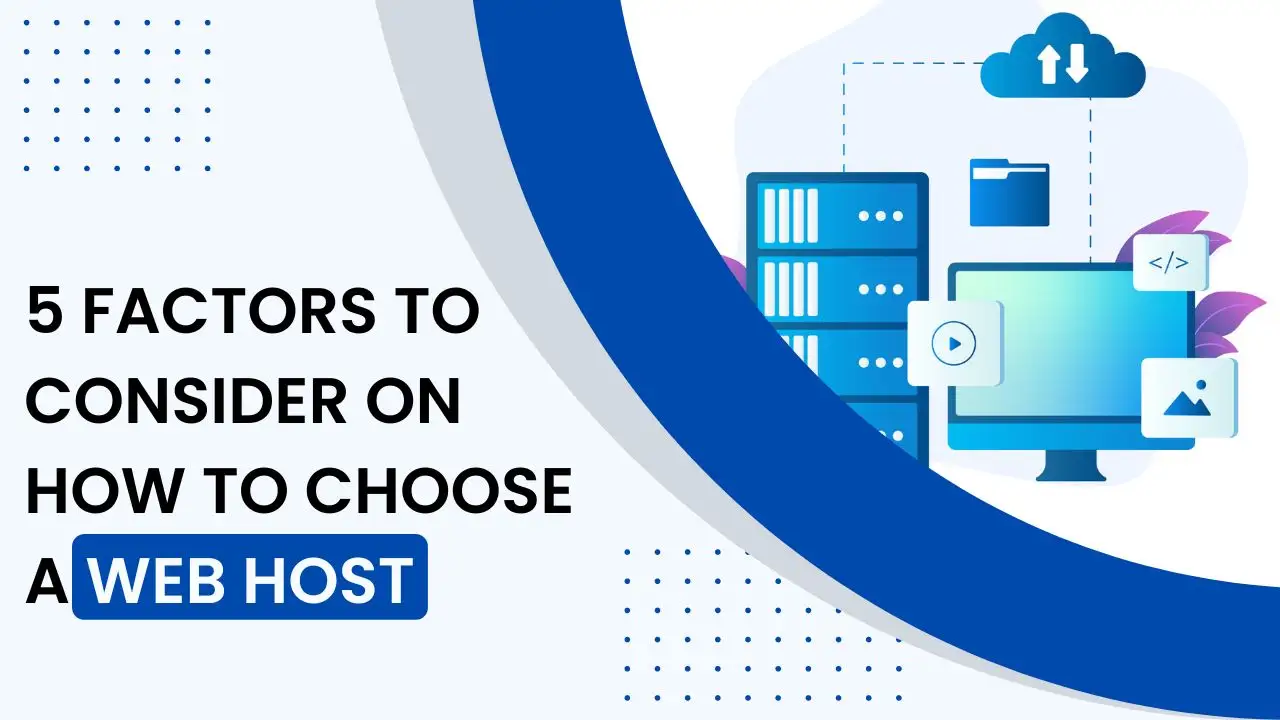

Choosing the hosting partner for your website is now become a hectic task. With so many options available in the market, you really get confused as to which one is the best for you.
It really depends on 2-3 critical factors. Your website traffic, your business size and your content size.
If you are sure about your niche and traffic, it will be easy for you to choose one hosting partner.
This blog aims at providing you the precise information based on which you will be able to make the right decision.
By the time you reach conclusion section, I hope you would have made your decision about the right hosting partner for your website.
Before diving into the vast sea of hosting providers, start by assessing your website's specific requirements. Consider the expected traffic volume, website size, type of content you'll be hosting, and the CMS platform you plan to use. This evaluation will help determine the resources and features you'll need from a hosting provider.
For instance, if you have a small personal blog with low traffic, shared hosting might be a cost-effective option.
If you run an e-commerce website with high traffic and sensitive customer data, you may require a more secure and scalable hosting solution. Such as a dedicated server or cloud hosting.
One of the most crucial aspects of a hosting provider is its reliability and uptime. Downtime can lead to a loss in revenue, reputation damage, and frustrated users. Look for providers that offer a minimum uptime guarantee of 99.9% or higher.
To assess reliability, read reviews and check the provider's historical uptime performance. Additionally, consider their backup and disaster recovery policies to ensure your website's data is adequately protected in case of unforeseen events.
Website performance and speed are vital for user experience and search engine optimization (SEO). A slow-loading website can lead to high bounce rates and lower search engine rankings. When evaluating hosting providers, consider their infrastructure, server hardware, and the availability of content delivery networks (CDNs).
CDNs help distribute your website's content across multiple servers worldwide, reducing latency and improving loading times for users in different locations. Also, inquire about caching mechanisms, such as server-side caching or built-in caching plugins, which can further optimize your website's speed.
While your current website requirements are essential, it's also crucial to consider future scalability and growth. A hosting provider should offer flexible plans that allow you to upgrade or downgrade resources as needed. This ensures that your website can accommodate increased traffic and expanding content without experiencing performance issues.
Check if the hosting provider offers additional services like managed hosting or the ability to easily integrate with other platforms or services you might need in the future.
Reliable technical support is essential, especially if you're not experienced in managing servers or troubleshooting technical issues. Look for hosting providers that offer 24/7 customer support through various channels, such as live chat, phone, or email.
Consider reading customer reviews to gauge the quality of their support and the average response times. Prompt and knowledgeable support can save you time and ensure your website is up and running smoothly.
Choosing the right hosting provider is a crucial step in establishing a successful online presence. By understanding your website's needs, evaluating reliability and uptime, considering performance and speed, planning for scalability, and assessing technical support, you can make an informed decision.
Remember to thoroughly research multiple hosting providers, compare their offerings, and take advantage of free trials or money-back guarantees to test their services before committing.
A well-chosen hosting provider will provide the foundation for a secure, reliable, and high-performing website, ultimately enhancing your online presence and user experience.
Before finalizing a hosting provider, it's essential to gather relevant information by asking the right questions. Here are some important inquiries to make:
● What is the uptime guarantee, and how is it measured?
● What level of customer support is provided?
● What security measures are in place?
● Are there any limitations or restrictions?
● Can I easily upgrade or downgrade my hosting plan?
● Are there any additional features or services included?
To choose the right hosting type, consider factors such as your website's size, anticipated traffic, scalability needs, budget, technical expertise, and specific requirements (e.g., e-commerce functionality or CMS preferences).
Reliability and uptime: Look for a provider with a strong uptime guarantee (ideally 99.9% or higher) to ensure your website remains accessible to visitors. Check customer reviews and uptime reports to gauge reliability.
Performance and speed: Opt for a hosting provider that offers fast loading times. This impacts user experience and search engine rankings. Consider providers with robust server infrastructure, content delivery networks (CDNs), and caching mechanisms.
Security: Verify that the hosting provider implements robust security measures such as SSL certificates, firewalls, malware scanning, and regular backups to protect your website and visitor data.
